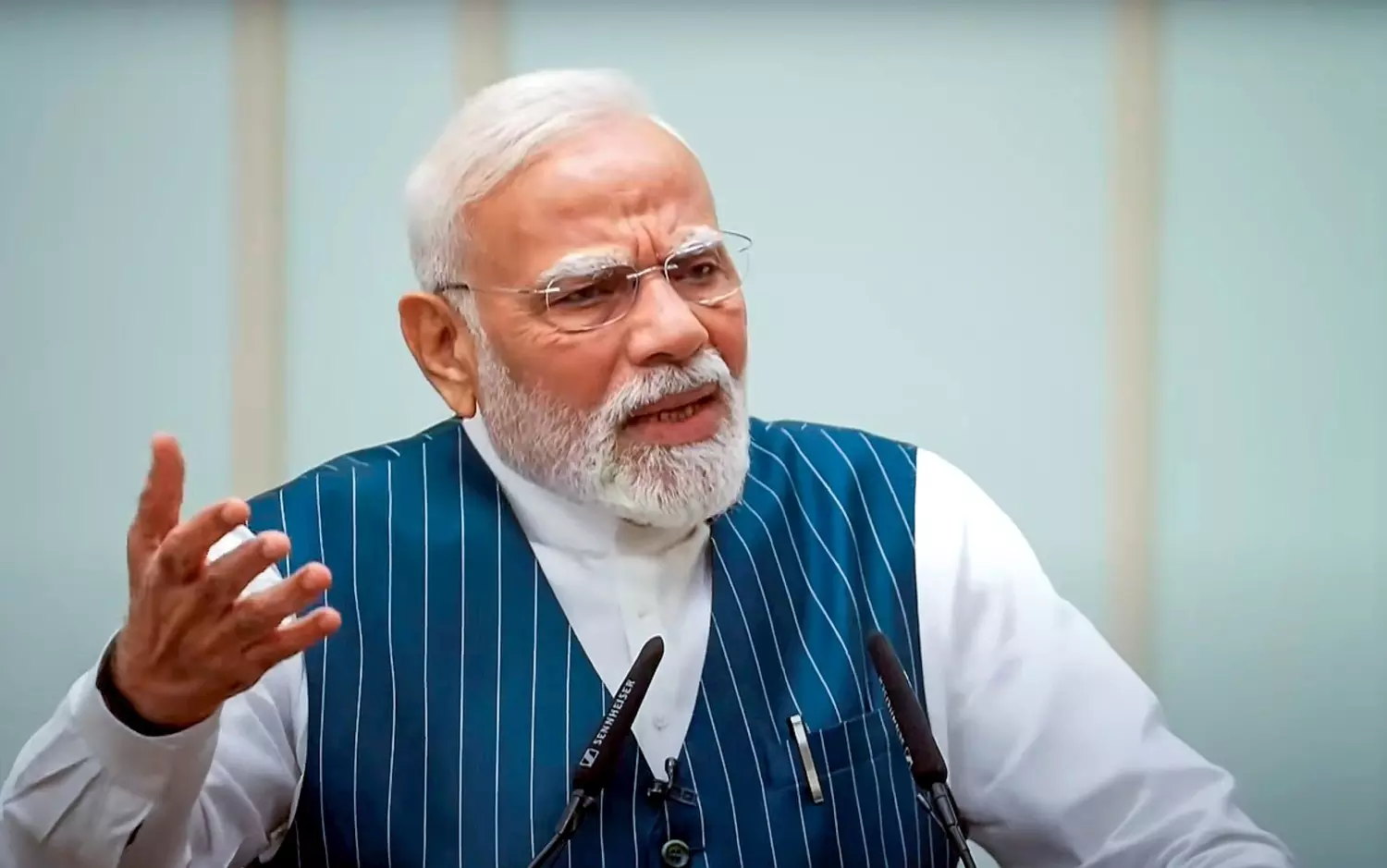
Israel should learn from Modi’s response to Trump, says Jerusalem Post op-ed
Jerusalem Post op-ed lauds Modi’s refusal to bow to Trump’s pressure, contrasting it with Israel’s response to Gaza hospital shelling

Israel should learn from India how to make “national honour” a “far-reaching strategic asset”, stated an op-ed in the Jerusalem Post, referring to Prime Minister Narendra Modi’s firm response to Donald Trump’s tariffs and mediation claim on the ceasefire between India and Pakistan following the military conflict between the two nuclear-armed neighbours in the wake of Operation Sindoor.
The op-ed written by Israeli defence policy expert Zaki Shalom, fellow at the Misgav Institute for National Security and Zionist Strategy, contrasted PM Modi’s response to Trump’s tariffs and ceasefire claims with the hurried response by his Israeli counterpart Benjamin Netanyahu, the Israeli Defence Forces (IDF) and the Chief of Staff after an Israeli shell hit Nasser Hospital in Khan Yunis on August 25.
The article described India’s currently strained bilateral ties with the US as a “severe trust crisis.” It stated that despite President Trump’s repeated expression of displeasure with India’s high tariffs on US products and purchase of Russian oil, which led to a cumulative 50 per cent tariff on Indian goods, Modi’s “ severe response” was not only rooted in economic and military tension but originated from a sense of “personal and national honour” being offended.
Also Read: Israel declares Gaza City a combat zone, recovers remains of two hostages
‘India downplayed Trump’s mediation claims’
The article pointed out that not only did Trump launch a “harsh verbal attack” on India over its purchase of Russian oil, but he even went to the extent of dubbing the economies of the two countries as “dead economies”, adding that their oil trade was funding Russia’s war in Ukraine.
It stated that during India’s border clash with Pakistan, Trump tried to position himself as a “neutral mediator”. It further stated that after Trump threatened both sides with sanctions and following the ceasefire, while Pakistan lauded his “mediation”, India chose to downplay Washington’s role. New Delhi has made it clear that the ceasefire deal was reached after Pakistan’s DGMO reached out to his Indian counterpart.
“Modi’s severe response was not only rooted in economic and military tension, but primarily stemmed from a sense of personal and national honour being offended. He declined four phone calls from President Trump. In this context, Israel can learn something important,” stated the op-ed.
Also Read: Deadly twin strikes on Gaza hospital targeted ‘Hamas cameras’: Israel
‘Modi didn’t rush to apologise’
Contrasting the Israeli political and military leadership’s response to the Nasser Hospital with Modi’s response to Trump’s pressure, the article pointed out that, unlike his Israeli counterpart, Modi did not “rush to apologise”; instead, he chose to respond forcefully, upholding national honour.
“Perhaps his approach came across as harsh, but it sent a clear message: India will not accept treatment as a subordinate or inferior state,” it stated.
“Israel, in contrast, tended during the Khan Yunis incident to display excess transparency and anxiety – an approach that may have been aimed at mitigating short-term damage but potentially harms long-term strategic interests,” it added.
Also Read: Israel’s strikes on Gaza hospital kill journos, rescuers; Netanyahu calls it ‘mishap’
‘Country must defend national honour’
The article further stated that the conclusion that can be drawn from Modi’s response to US pressure was that a country must defend its national honour even when facing difficult and complex situations.
“A hasty assumption of responsibility may be interpreted as weakness and exploited by adversaries. It is precisely in such moments that caution in expression and firmness in principle are required,” stated the article.
“From India, we learn that national honour is not a luxury but a far-reaching strategic asset. If Israel desires to secure its standing and security, it must project firm resilience to the world. This would imply delaying expressions of apology, even when international pressure is intense,” it added.

